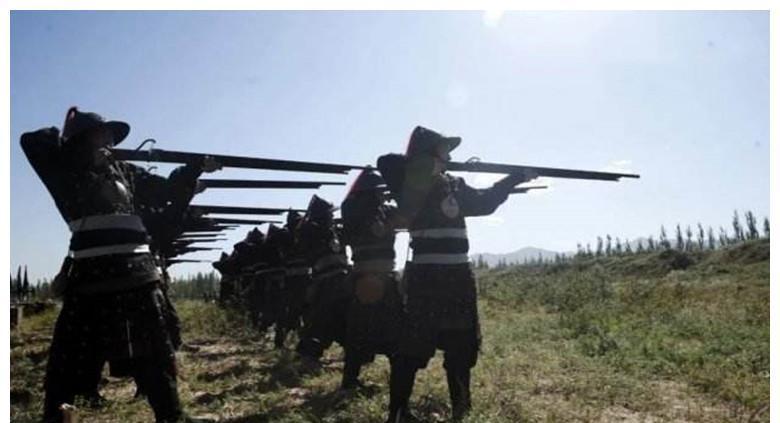We all know that behind the change of every dynasty in ancient times, there were countless wars of bloodshed and sacrifice. The demise and rise of every dynasty, military wars almost always played a decisive role. In the Ming Dynasty, there was such a military camp, directly under the orders of the imperial court, shouldering the heavy responsibility of "internal defense of the Beijing Division, external preparation for conquest", and even the earliest firearms unit established in China and even the world, this military camp is the Shenji Battalion. How powerful is the Divine Machine Battalion? Listen to the editor slowly.

The Ming Dynasty Janissaries had three battalions, namely: the Five Battalions, the Three Thousand Battalions, and the Divine Machine Battalion. Among them, the Shenji Battalion was a special unit in the Ming Dynasty army that specialized in firearms. Externally, it can resist strong enemies, and internally, it can play a role in protecting beijing. Therefore, the Divine Machine Battalion was directly commanded by the emperor at that time, and its status was very important. So how was the Divine Machine Camp established?
In the eighth year of Yongle (1410), Ming Chengzu Zhu Di zhengjiao (present-day Vietnam) to obtain the Shen Machine Gun Method, so he began to establish the Shen Ji Battalion for exercises. Later, in the battle of pro-conquest of Mobei, Ming Chengzu put forward the operational principle of "the divine machine is in front of the front, and the horse team is behind", so that the shenji battalion cooperated with infantry and cavalry to fight, played an important role, and made the application of firearms more professional, so that the shenji battalion jumped up and became an important branch of the Ming army.
Chinese firearms were embryonic during the Song Dynasty and arose during the Ming Dynasty. Therefore, the Shenji Battalion played a crucial role in the Ming Dynasty. After the establishment of the Shenji Battalion, it followed the Ming Emperor on many expeditions and won victories. The main weapon of the Divine Machine Battalion is the copper fire rifle, and when fighting, there must be a certain interval between the artillery units, which is convenient for loading shells, and can take turns to salvo and destroy the enemy position with artillery fire. In February 1410, the Ming army was blocked by the Mongol army, the Shenji battalion immediately dispatched to lead the Mongol soldiers to the site of the advance ambush, and then the Shenji battalion suddenly attacked with copper fire, a large number of stone or iron spherical projectiles were fired, the Mongols were defenseless, most of the soldiers were killed in the artillery fire, and then the Ming cavalry troops launched an attack and won the final victory.
In addition to the natural advantages of firearms, it has been recorded that the Divine Machine Battalion usually used the "wheel firing" tactic in order to be able to ensure long-term continuous shooting. The tactic is divided into three rows, and after the first row of soldiers finish shooting, they hand the divine machine gun to the middle row and take over the magic machine gun that has been loaded with ammunition. Therefore, the soldiers in the middle row are naturally responsible for the work of passing the magic machine, and the soldiers in the back row are responsible for quickly loading ammunition. Such repeated rotation, when attacking the enemy, there will be no interruption in shooting, and the combat effectiveness is very strong.
After the Opium War, the Qing government also established the Shenji Battalion, and in order to resist foreign invasions, it began to make a large number of firearms. Unfortunately, due to the Qing government's closed-door policy at that time, its firearm structure still followed the ancestral system, and its performance had long lagged behind that of the Western powers, so it was eventually defeated by the Western powers.